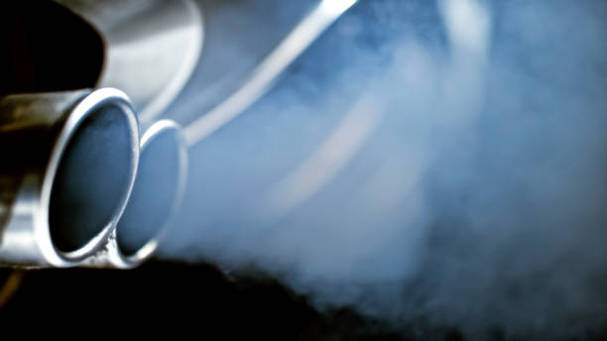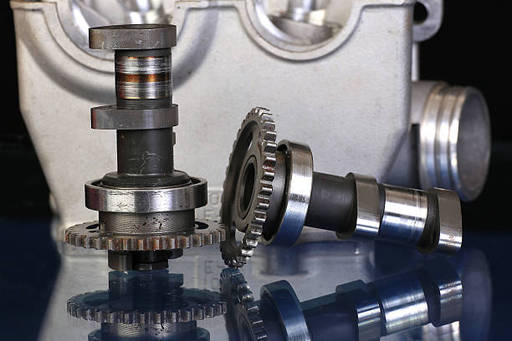Muffler bearings are bearings that are specifically used in mufflers. They help to reduce noise and vibration, and they also help to improve the flow of exhaust gases.
How Do Muffler Bearings Work?
Muffler bearings work by using a combination of metal balls and races. The balls and races create a labyrinth seal that helps to keep the exhaust gases flowing smoothly while also reducing noise and vibration.
Are There Different Types Of Muffler Bearings?
Yes, there are different types of muffler bearings. One type of muffler bearing is the thrust type, which helps to keep the exhaust gases moving in the right direction. Another type of muffler bearing is the radial type, which helps to evenly distribute the load across the bearing.
What Are The Benefits Of Using Muffler Bearings?
Muffler bearings offer several benefits, including reducing noise and vibration, improving exhaust gas flow, and helping to evenly distribute the load across the bearing.
Signs Of A Failing Or Damaged Exhaust Or Muffler
- Excessive Engine noise
- Rattling or vibrations coming from the exhaust or muffler
- poor fuel economy
- Muffler or exhaust is hot to the touch
- Check Engine Light is on
How Do I Know If I Need New Muffler Bearings?
If your muffler is making more noise than usual or if you notice a decrease in performance, it may be time to replace your muffler bearings.
We’re going to take a closer look at muffler bearings. What are they? Why do you need them? And where can you buy them?
Muffler bearings are an important part of your car’s exhaust system. They help to reduce noise and vibration and keep the muffler in place. If your muffler bearings are worn or damaged, it can cause problems with your car’s performance and increase the amount of noise it makes.
If you need new muffler bearings, you can buy them from most automotive stores or online retailers. Be sure to choose a high-quality bearing that is made for your specific make and model of car.
How To Replace A Muffler Bearing?
If your muffler bearings are worn or damaged, you may need to replace them. This can be a tricky process, so be sure to follow the instructions carefully. Here’s how to do it:
1. Park your car on a level surface and remove the exhaust pipe.
2. Remove the old muffler bearings and clean the area around the hole.
3. Install the new muffler bearings and reattach the exhaust pipe.
4. Start your car and check for any leaks.
5. Repeat these steps for the other side of your car if necessary.
Replacing your muffler bearings is a relatively easy process, but it’s important to do it carefully. Be sure to follow the instructions above and use high-quality parts to avoid any problems.
Rattling Sound That Exhaust Makes
One of the most common problems that people have with their exhaust systems is a rattling sound. This can be caused by many different things, but one of the most common causes is loose or damaged muffler bearings. If you notice a rattling sound coming from your car’s exhaust, it’s important to check the muffler bearings and make sure they are tight and in good condition.
3 Signs It’s Time For Exhaust Repair
There are several signs that can indicate that your exhaust system needs repair. If you notice any of these signs, it’s important to have your exhaust system checked by a professional.
1. A decrease in performance
2. Increased noise levels
3. Exhaust smells bad or is leaking gas
Problems In Your Car Muffler
It can result in a number of symptoms that can negatively affect your car’s performance. These include increased noise, decreased performance, and even damage to other parts of the exhaust system. To avoid these problems, it is important to regularly check your muffler bearings and replace them when necessary.
Muffler bearings are an essential part of your car’s exhaust system and play an important role in reducing noise and vibration. If you suspect that your muffler bearings are worn or damaged, be sure to replace them as soon as possible.
Tools And Materials Required
– Wrench
– Socket set
– Replacement muffler bearings
– Ratchet
– screwdriver
– Clean cloth
– Safety glasses
The best hand tools and materials that you will need for this project include a wrench, a socket set, replacement muffler bearings, a ratchet, a screwdriver, and a clean cloth. You may also want to wear safety glasses while working on your car.
FAQ’s
Q. Do You Really Need A Muffler?
While a muffler isn’t required by law in most states, they are generally a good idea. A muffler helps to reduce the noise that your car makes, which can be helpful if you live in an area where noise pollution is an issue. Additionally, a muffler can help to improve your car’s performance by reducing exhaust backpressure.
Q. How Often Should You Replace Your Muffler Bearings?
Muffler bearings should be replaced whenever they become worn or damaged. Additionally, it’s a good idea to check them regularly for signs of wear and tear.
Q. Where Can I Buy Replacement Muffler Bearings?
Replacement muffler bearings can be bought from most automotive stores or online retailers.
Q. What Are Some Common Symptoms Of A Problem With My Muffler?
Some common symptoms of a problem with your muffler include increased noise, decreased performance, and damage to other parts of the exhaust system. If you notice any of these problems, it’s important to have your muffler checked by a mechanic.
Q. Can A Muffler Damage An Engine?
While it is possible to install a muffler yourself, it is generally recommended that you have a professional do the job. This is because there are many factors that need to be taken into account when installing a muffler, such as the type of car and the size of the exhaust pipe. Additionally, using the wrong type of muffler or failing to properly seal the installation can result in decreased performance and even damage to your car.
Q. Is It Ok To Drive With A Broken Muffler?
It is generally not advisable to drive with a broken muffler. A broken muffler can cause decreased performance, increased noise levels, and even damage to other parts of the exhaust system. If you suspect that your muffler is damaged, be sure to have it repaired as soon as possible.


